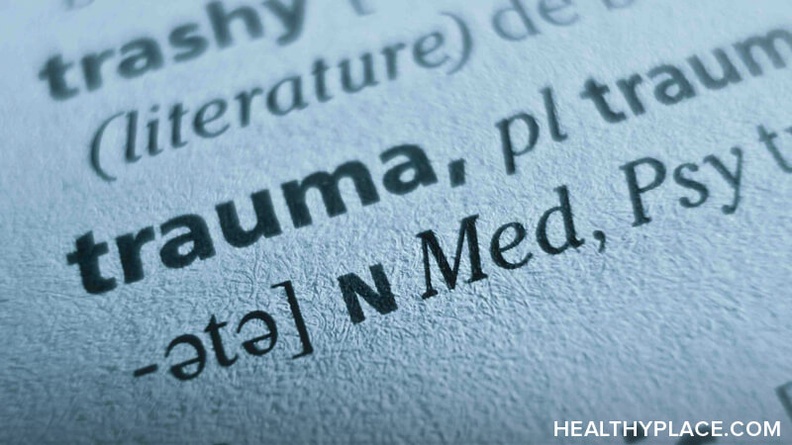Coping with Posttraumatic Stress Disorder (PTSD)

Coping with posttraumatic stress disorder (PTSD) is a must-have skillset for many in the lesbian, gay, bisexual, transgender, queer, intersex, asexual, etc. (LGBTQIA+) community because PTSD is more prevalent than we think. The possible trauma endured by these LGBTQIA+ survivors is hate crimes, intimate partner violence and sexual assault. Symptoms of PTSD can include flashbacks of the trauma(s) and a fair bit of anxiety when in triggering situations. This is how my PTSD manifests in my own life.
I have carried a diagnosis of PTSD for four years. My childhood abuse, coupled with many traumas along the way, makes my diagnosis less than surprising for me.
What I found more surprising were the symptoms of PTSD. I struggled to cope with the symptoms in the beginning. I wished many times for a magic wand to will them away. With no wand in sight, I learned a few coping skills to ease the anxiety and nightly flashbacks.
How I'm Coping with PTSD Symptoms
Run the Anxiety Away
Exercise can do wonders for quieting our minds. Night terrors and anxiety were the culprits keeping me up most nights. A run or brisk walk kept my attention on the present moment. It also caused me to be more tired with less energy to worry or fret. My focus on the here and now allowed my thoughts little time to stray before bed.
Listen to Your Body
Our bodies often tell us what it needs. It took me years to listen to this inner voice. When my body tells me I am hungry, I fill it with nourishing food. If my body tells me it is tired, I make time for rest. This same concept allowed me to learn when my body was becoming anxious. This awareness of my body and how it ticks helps me avoid panic attacks and heightened anxiety. I am able to divert my attention elsewhere before my anxiety takes away my ability to think straight.
Give Yourself Positive Inner Dialogue
Our inner dialogue says a lot about how we think of ourselves. A rule of thumb is to talk to yourself using the same phrases and tone as you would with a friend or lover. Negative self-talk can lead to heightened anxiety and feelings of shame or guilt. I used an array of brightly-colored sticky notes when I was working on my inner dialogue. These small messages and kind words helped me turn positive self-talk into a regular habit.
Posttraumatic stress disorder and its symptoms are not going to be figured out overnight. While working on a possible exercise regimen and some mindful awareness, do not forget kindness towards yourself. Rome was not built in a day, but there was one day that put the building into motion. Is today your day?
How are you coping with PTSD? Share your skills in the comments.
Namaste.
APA Reference
Nolasco, M.
(2020, October 25). Coping with Posttraumatic Stress Disorder (PTSD), HealthyPlace. Retrieved
on 2026, January 11 from https://www.healthyplace.com/blogs/thelifelgbt/2020/10/coping-with-posttraumatic-stress-disorder-ptsd